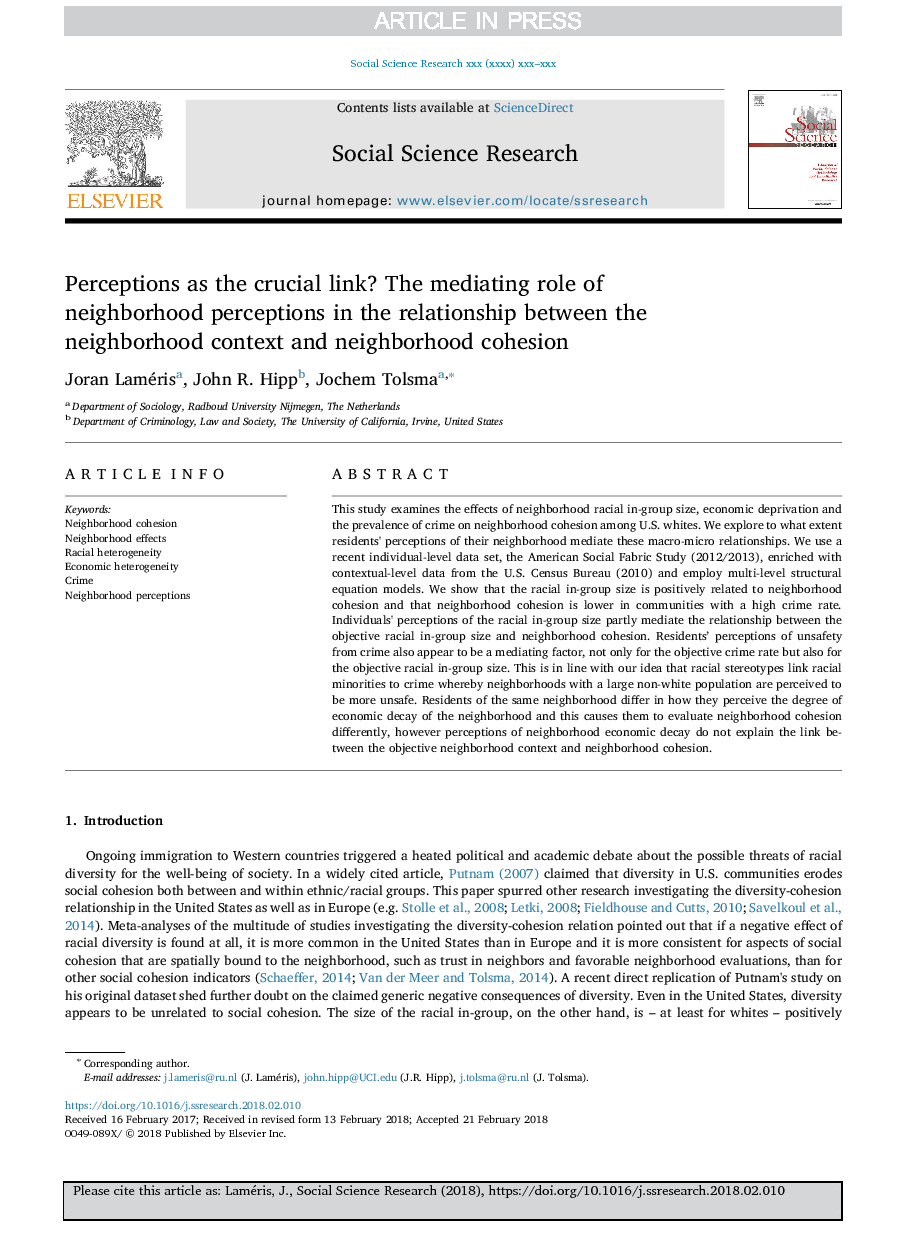ترجمه فارسی عنوان مقاله
درک به عنوان پیوند حیاتی نقش میانجی از ادراکات محله در رابطه بین محله و انسجام محله
عنوان انگلیسی
Perceptions as the crucial link? The mediating role of neighborhood perceptions in the relationship between the neighborhood context and neighborhood cohesion
| کد مقاله | سال انتشار | تعداد صفحات مقاله انگلیسی |
|---|---|---|
| 134628 | 2018 | 16 صفحه PDF |
منبع

Publisher : Elsevier - Science Direct (الزویر - ساینس دایرکت)
Journal : Social Science Research, Volume 72, May 2018, Pages 53-68
ترجمه کلمات کلیدی
انسجام محله اثرات محله، ناهمگونی نژادی، ناهمگونی اقتصادی، جرم، ادراکات محله،
کلمات کلیدی انگلیسی
Neighborhood cohesion; Neighborhood effects; Racial heterogeneity; Economic heterogeneity; Crime; Neighborhood perceptions;

